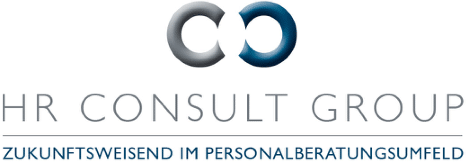Effektive Interviewtechniken sind entscheidend für den Erfolg eines Unternehmens, da sie es ermöglichen, die am besten geeigneten Kandidaten für offene Stellen zu identifizieren. Ein gut durchgeführtes Interview kann nicht nur wertvolle Einblicke in die Fähigkeiten und die Persönlichkeit eines Bewerbers liefern, sondern auch dazu beitragen, die Passgenauigkeit für das Team und die Unternehmenskultur zu bewerten. Hier sind einige Ratschläge, wie Unternehmen ihre Interviewtechniken verbessern können:
Gründliche Vorbereitung
Eine gründliche Vorbereitung ist der Schlüssel zu einem erfolgreichen Interview. Dies umfasst die genaue Kenntnis der Stellenbeschreibung, der erforderlichen Kompetenzen und der Unternehmenskultur. Interviewer sollten sich auch mit dem Lebenslauf und dem Bewerbungsschreiben des Kandidaten vertraut machen, um gezielte Fragen vorbereiten zu können.
Strukturierte Interviews
Die Verwendung eines strukturierten Interviewansatzes, bei dem allen Kandidaten dieselben Fragen gestellt werden, kann die Objektivität und Vergleichbarkeit der Antworten erhöhen. Dies hilft, persönliche Voreingenommenheiten zu minimieren und fokussiert das Gespräch auf die für die Stelle relevanten Kompetenzen und Erfahrungen.
Verhaltensbasierte Fragen
Verhaltensbasierte Fragen, die darauf abzielen, zu erfahren, wie ein Kandidat in der Vergangenheit in bestimmten Situationen gehandelt hat, können aufschlussreiche Informationen liefern. Solche Fragen ermöglichen es dem Interviewer, die praktischen Fähigkeiten und die Problemlösungskompetenz des Bewerbers zu bewerten. Beispiele für verhaltensbasierte Fragen sind: „Können Sie ein Beispiel nennen, wie Sie ein schwieriges Problem gelöst haben?“ oder „Wie gehen Sie mit Konflikten im Team um?“
Kompetenzbasierte Fragen
Neben verhaltensbasierten Fragen können kompetenzbasierte Fragen dazu beitragen, die spezifischen Fähigkeiten und das Wissen des Kandidaten in Bezug auf die Stelle zu bewerten. Diese Fragen sollten darauf abzielen, die direkte Anwendung von Fähigkeiten und Wissen in beruflichen Situationen zu erfassen.
Aktives Zuhören
Aktives Zuhören ist eine wesentliche Fähigkeit für Interviewer. Es geht darum, vollständig präsent zu sein und auf das zu achten, was der Kandidat sagt, und ebenso wichtig, was nicht gesagt wird. Dies kann durch offene Körpersprache, Augenkontakt und gelegentliches Nicken oder verbales Feedback gefördert werden.
Schaffen einer angenehmen Atmosphäre
Ein Interview ist eine stressige Situation für die meisten Bewerber. Indem Interviewer eine freundliche und einladende Atmosphäre schaffen, können sie dazu beitragen, dass sich Kandidaten wohler fühlen, was oft zu offeneren und ehrlicheren Antworten führt.
Einsatz von Fallstudien und praktischen Aufgaben
Für bestimmte Positionen kann es hilfreich sein, Fallstudien oder praktische Aufgaben in das Interview zu integrieren. Dies gibt den Kandidaten die Möglichkeit, ihre Fähigkeiten in Aktion zu demonstrieren und bietet den Interviewern Einblicke in die Arbeitsweise und Problemlösungsfähigkeiten der Bewerber.
Feedback und Nachbereitung
Nach dem Interview sollten Unternehmen den Kandidaten Feedback geben und den Interviewprozess intern nachbereiten. Dies umfasst die Bewertung der Leistung des Kandidaten anhand der festgelegten Kriterien und die Entscheidung, ob der Bewerber für eine weitere Runde in Betracht gezogen oder ein Angebot unterbreitet werden soll.
Durch die Verbesserung ihrer Interviewtechniken können Unternehmen sicherstellen, dass sie die bestmöglichen Entscheidungen bei der Einstellung neuer Mitarbeiter treffen. Dies trägt nicht nur zur Leistungssteigerung des Unternehmens bei, sondern fördert auch eine positive Unternehmenskultur und Mitarbeiterbindung.
Fazit:
Die Optimierung der Interviewtechniken ist für Unternehmen ein entscheidender Schritt, um aus dem Pool der Bewerber die wahren Talente herauszufiltern und an sich zu binden. Durch eine gründliche Vorbereitung, die Anwendung strukturierter und verhaltens- sowie kompetenzbasierter Fragen, aktives Zuhören und das Schaffen einer angenehmen Atmosphäre können Interviewer tiefere Einblicke in die Fähigkeiten und die Persönlichkeit der Kandidaten gewinnen. Die Integration von Fallstudien und praktischen Aufgaben bietet zudem eine einzigartige Perspektive auf die praktischen Fähigkeiten der Bewerber. Abschließend ist es wichtig, den Prozess mit einem konstruktiven Feedback und einer effektiven Nachbereitung abzurunden. Unternehmen, die diese Techniken meistern, verbessern nicht nur ihre Chancen, die passendsten Kandidaten zu identifizieren, sondern stärken auch ihre Position als attraktive Arbeitgeber auf dem Markt. Letztendlich ist ein effektives Interviewverfahren der Schlüssel, um nicht nur Talente zu gewinnen, sondern auch eine langfristige und produktive Beziehung zwischen Unternehmen und Mitarbeitern zu fördern.



